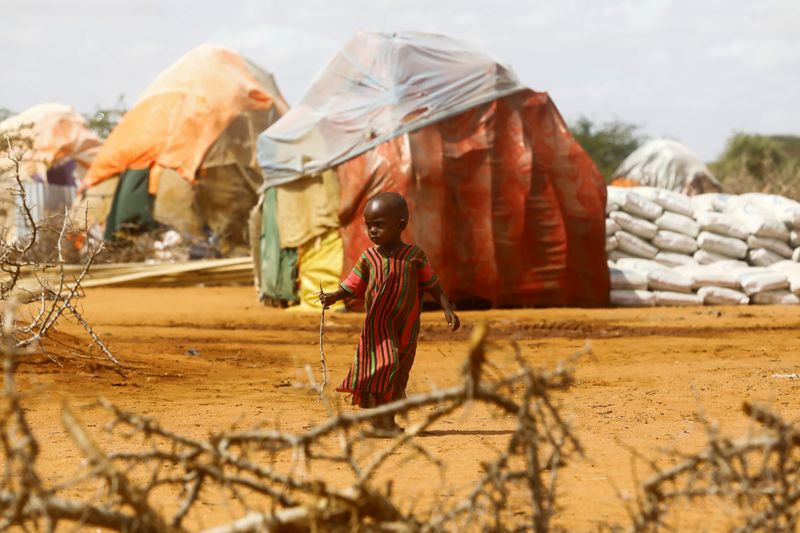By Joe Bavier
JOHANNESBURG (Reuters) - African nations facing a food crisis brought on in part by the global pandemic and conflict in Ukraine need immediate liquidity support and in some cases debt relief, speakers on a panel at the Reuters NEXT conference said on Wednesday.
Food insecurity has worsened in much of Africa in recent years, driven by protracted armed conflicts and the impacts of climate change, which has led to prolonged droughts in some areas and crop-destroying floods in others.
But the situation was aggravated by a pandemic-provoked economic downturn, rising debt levels and, more recently, the fallout from Russia's invasion of Ukraine, which is partly responsible for food, fuel and fertiliser price spikes.
"It's not just been these macroeconomic fallouts, but also, heart-wrenchingly, the food insecurity issue," said Abebe Aemro Selassie, director of the International Monetary Fund's (IMF) Africa Department.
"Food insecurity has shot up like never before."
The number of East Africans facing acute food insecurity has jumped by 60% to 82 million in the past year. In West Africa, it has risen from 31 million to 42 million.
"Immediately, (we need) investment through social protection systems addressing humanitarian requirements, food and making cash available for individuals," said Michael Dunford, Eastern Africa director for the United Nations World Food Programme.
During the pandemic, the IMF and World Bank backed an initiative that suspended poor countries' rapidly growing debt service obligations, allowing them to instead channel those resources into shoring up their health systems and economies.
That initiative has now expired however, even as many nations are struggling to feed their people.
Last month, the IMF approved a new food shock window giving countries access to emergency financing to combat acute food insecurity and offset sharp increases in their food import bills.
But Razia Khan, Middle East and Africa Chief Economist at Standard Chartered (OTC:SCBFF) Bank, questioned whether simply providing more liquidity would be enough.
"A big question that goes unanswered still is are more and more sovereigns going to have to undergo some form of deep restructuring?" she said.
The Group of 20 (G20) major economies has endorsed a so-called Common Framework aimed at streamlining debt restructuring and profiling for struggling poor countries.
Easing their debt burdens would allow governments to focus on pressing problems including food insecurity. However, nearly two years on just a handful of countries have opted to use the framework, while only one - Chad - has successfully negotiated relief.

"One of the many fundamental problems that we've had is that progress has been quite slow," Khan said.
To view the Reuters NEXT conference live on Nov. 30 and Dec. 1, please click here.